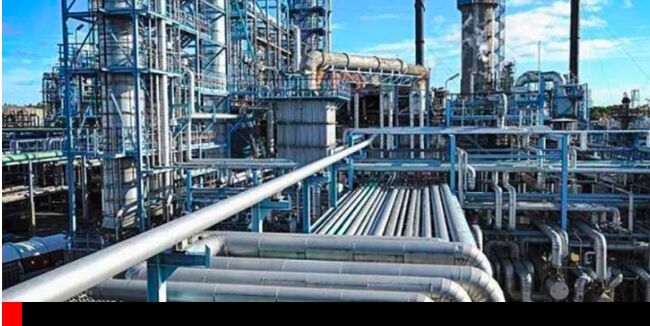Nigeria’s Domestic Refining Output Drops 92% – Report
A recent report shows that output from the Nigeria’s four refineries fell from 92,000 barrels per day in 2012 to just 6 000 barrels per day in 2022. This represents a 92 per cent drop in production capacity.
The data was culled from the report, which was published in the 72ndn edition of Energy Institute.

This came as the latest report from the Organisation of the Petroleum Exporting Countries’ Annual Statistical Bulletin 2023, also revealed the country’s crude oil refining capacity fell from 33,000 bpd in 2018 to 6,000 bpd in 2022, representing about 81 per cent drop in production output.
There have been growing concerns over the country’s continued importation of refined petroleum products despite boasting four government-owned refineries.
The refineries—two in Port Harcourt and one each in Warri and Kaduna—have a combined capacity to process around 4.45 million barrels per day of crude oil.
The Minister of State for Petroleum, Heineken Lokpobiri, had in August said the Port Harcourt plant would eventually begin operations by the end of this year after several delays.
He also said the Warri and Kaduna refineries were slated to commence crude oil processing sometime within the first quarter of 2024.
The refinery at Port Harcourt is undergoing a $1.5bn upgrade, as the minister emphasised that the aim of the revamping was to reduce and eventually stop the country’s dependency on fuel imports.
State oil company, the Nigerian National Petroleum Company Ltd, had stopped payment on petrol subsidy in June due to the high cost spent on petrol importation.
Consequently, petrol prices jumped from N189 per litre to as high as N620 per litre in Lagos and its environs, and N700 and above in the North.
The Premium Motor Spirit Price Watch Report for October 2023 by the National Bureau of Statistics said the average price of petrol was N631, indicating about 223 per cent increase when compared to the value recorded in October 2022 (N195).
Despite the massive investment in the refineries, the Federal Government currently also relies on the Dangote Refinery in which it owns a 20 per cent stake.

